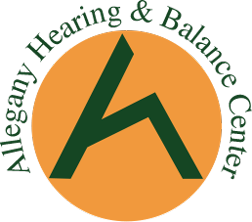Have you ever heard of noise pollution? As defined by the United States Environmental Protection Agency (EPA), noise pollution is “unwanted or disturbing sound” that interferes with activities like sleeping and talking, and it can diminish your quality of life.
Though we are not all affected by noise pollution to the same degree, for those it does affect, it may have long-lasting, damaging effects. As the EPA puts it, “the fact that you can’t see, taste, or smell it may help explain why it has not received as much attention as other types of pollution, such as air pollution or water pollution.” But it’s still a problem, and one you’re probably being affected by right now.
Problems related to noise include:
- Stress-related illnesses
- High blood pressure
- Noise-induced hearing loss (NIHL)
- Sleep disruption
- Interrupted or reduced productivity
Loud Noise at Work
NIHL is one of the most common work-related health concerns, according to the Centers for Disease Control and Prevention (CDC). The CDC reports that occupational hearing loss is one of the most common work-related illnesses in the United States today. It is estimated that 22 million workers are exposed to potentially damaging noise each year. Many people don’t realize they are at risk or have a hearing loss until it’s too late.
NIHL is the result of harmful noise exposure and may occur in certain work environments. Another type of work-related hearing health concern has more to do with your ability to process sound in complex auditory environments. Our ability to process competing sound signals is actually pretty low, which is why you may notice it’s difficult to hear in background noise or while two people are talking at once.
In the Office
Ever had this happen? You’re trying to craft a concise, informative, important email to your boss about a recent project, but all you can hear is your co-worker yammering on about last night’s game. Try as you might, the frustration trumps your ability to get the words out. You may call it annoying, but this kind of distraction is noise pollution, and it may unknowingly affect us every day.
According to The New Yorker, open office plans are increasingly common today, making up 70 percent of office layouts. Created in Germany in the 1950s, they were meant to encourage communication, idea flow, and transparency, but many studies have found the opposite to be true.
Sound consultant and speaker Julian Treasure claims loud office noise is incredibly detrimental to productivity levels, stating that open office spaces (as popular as they are) can reduce productivity by up to 66 percent.
In a study published in the British Journal of Psychology in 1998, researchers found that employers were significantly distracted when they could hear others talking around them, and they were less able to perform their duties. Noise in the office is also associated with increased stress hormone levels and a lower willingness to participate with others.
What You Can Do About Noise Pollution
One way you can help the effects of noise pollution is by spreading the word. Share this post, and put some noise out there that is helpful!
Another way you can protect yourself and others from noise pollution’s harmful effects is by protecting your ears. There are a variety of ways of doing this that are quick and simple.
In loud settings where machinery is used or at sporting events with rowdy crowds, try hearing protection:
- Foam earplugs, premolded earplugs, and canal caps: Look for earplugs with flanges to limit the volume while still allowing for audibility of speech. For higher levels of noise, foam or silicone earplug material is best because it reduces additional decibel levels.
- Earmuffs: Look for soft, padded ear cups with a slim headband so the earmuffs will stay in place comfortably. Those soft ear cups will help air circulation over the ear to keep your head cool. You can even find foldable, easy-to-carry earmuffs, as well as reflective ones.
In the office setting:
- Earbuds: These can be custom fit for your unique ear shape, which can better block out external noise, meaning you hear what you want to hear while listening at a lower volume. Or try the 60/60 rule, listening to your device at 60 percent of full volume for 60 minutes, as NIHL is affected by the length and decibel level of the sound exposure.
- Advocate: Though an office remodel might not be in the books, talk to your manager about having a quiet space where you can go to focus.
Sharing is caring. Share this post with others to help make their day-to-day life a little less distracting and a lot more productive! Connect with us for more information on how to protect your hearing.
- http://www.newyorker.com/business/currency/the-open-office-trap
- https://www.ted.com/talks/julian_treasure_the_4_ways_sound_affects_us/transcript?language=en#t-191572
- https://www.ccohs.ca/oshanswers/phys_agents/non_auditory.html
- http://blog.ted.com/9-ways-that-sound-affects-our-health-wellbeing-and-productivity/
- http://www.cdc.gov/niosh/topics/noise/stats.html
- http://chchearing.org/facts-about-hearing-loss/
- Holmes, C. et al. Untreated Hearing Loss Linked to Depression, Social Isolation in Seniors. Seniors Research Group, The National Council on the Aging. Audiology Today. May 1999.
- http://www.misophonia.com/symptoms-triggers/
- http://blog.ted.com/9-ways-that-sound-affects-our-health-wellbeing-and-productivity/


